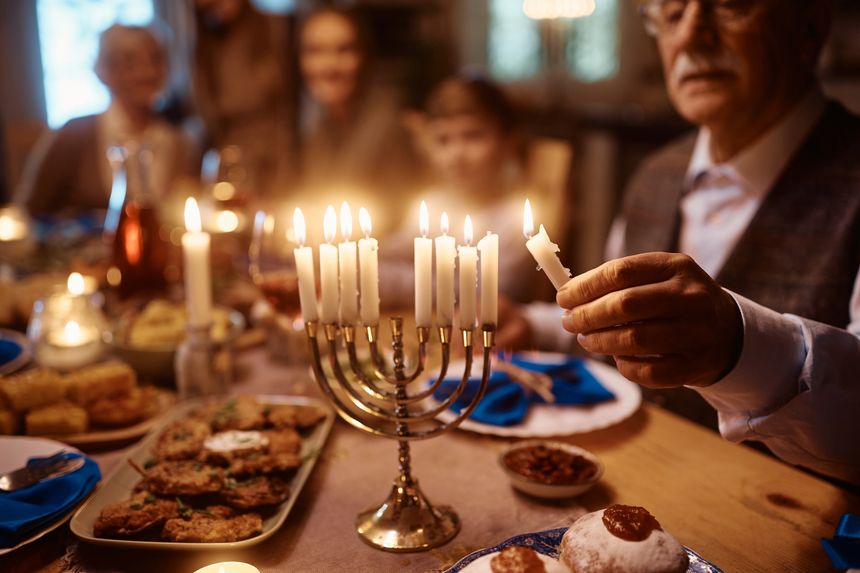Photo:
Getty Images/iStockphoto
For Hallmark consumers, Hanukkah is a familiar and uplifting story: A subjugated people (the Jews) rise up against their tyrannical oppressors (the Seleucid Greeks) and prevail against all odds with grit and God’s help. It’s a made-for-TV narrative. But it’s also incomplete.
Contrary to popular scripts, the war was primarily one between Jews and other Jews. The conflict saw a small group, the Maccabees, fighting to preserve their heritage and uniquely Jewish way of life against a much larger majority that had assimilated into the Hellenistic culture of the time. Recalling this more complete story offers a valuable lesson for American Jews celebrating Hanukkah next week.
Jews living in Jerusalem during the reign of Antiochus III (241-187 B.C.) led relatively secure lives. While the Greeks doubtless encouraged their Jewish counterparts to conform to their culture, they were also largely tolerant and respectful of Jewish particularism. In “The Antiquities of the Jews,” the Roman-Jewish scholar
Flavius Josephus
quotes a letter from Antiochus in which he declares that all Jews should be able to “live according to the laws of their own country.”
Yet by the time of the Maccabean Revolt only one generation later, Jews were increasingly embracing Greek culture and eroding their own. Such evolutions demonstrate the challenges that come with being different, even in societies that ostensibly tolerate difference.
We rarely focus on such challenges today. Instead, our attention is understandably directed toward the consequences of anti-Semitism. Consider that the global Jewish population in 1939 was nearly 17 million. The Nazis and their collaborators over the following six years murdered more than one-third of that population. Nearly 80 years later, Jews still haven’t regained their pre-Holocaust numbers.
This year, data from New York paint a grim picture. In November alone, the New York City Police…
Click Here to Read the Full Original Article at RSSOpinion…

